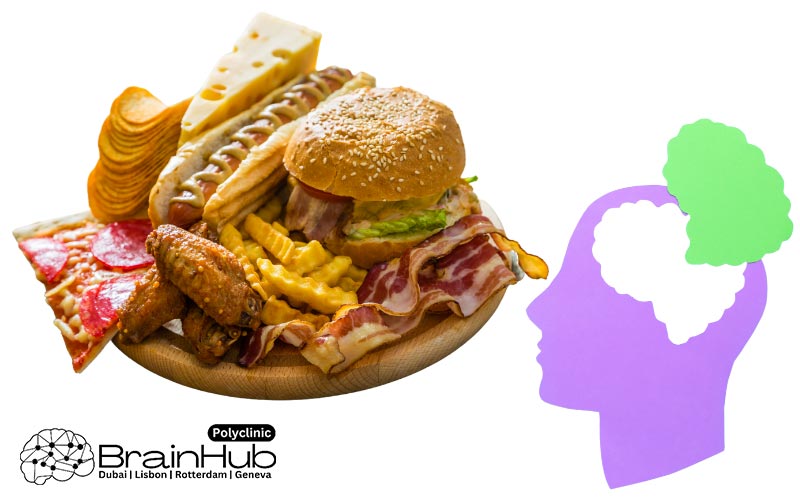What are the 5 Worst Foods for Memory?

In the intricate landscape of memory and cognitive function, the foods we consume play a pivotal role. Our brain, the orchestrator of our daily symphony, relies heavily on a balanced diet for optimal performance. However, there are dietary choices that may act as silent saboteurs, potentially hindering our memory prowess. In this exploration, we unveil the culprits – the 5 worst foods for memory – shedding light on the importance of mindful eating for cognitive well-being.
At BrainHub, Dubai’s eminent neuroscience center, we understand that the road to a healthy memory begins with informed dietary choices. Our memory clinic in Dubai is dedicated to unraveling the complexities of cognitive health, offering insights that empower individuals to make lifestyle changes for enhanced memory function.
Worst Foods for Memory
Maintaining a healthy diet is crucial for overall well-being, and it plays a significant role in supporting cognitive function and memory. While some foods are known for their brain-boosting properties, others have raised concerns due to their potential negative impact on memory. In this article, we explore a variety of foods that are generally considered less favorable for cognitive health.
Processed Foods:
One of the culprits often implicated in cognitive decline is the consumption of processed foods. High in refined sugars, unhealthy fats, and additives, these foods can contribute to inflammation and oxidative stress, negatively affecting cognitive function over time.
Trans Fats:
Trans fats, commonly found in partially hydrogenated oils, have been linked to an increased risk of cognitive decline and memory loss. Fried and commercially baked goods are notorious for containing these detrimental fats.

Highly Processed and Sugary Foods:
Diets high in sugar have been associated with cognitive impairment and an elevated risk of conditions like dementia. Excessive sugar intake may lead to insulin resistance, inflammation, and other factors impacting brain health.
Highly Salted Foods:
Excessive salt intake, often prevalent in processed and fast foods, may contribute to high blood pressure, impairing cognitive function and increasing the risk of dementia.
Alcohol:
While moderate alcohol consumption may have health benefits, excessive intake can negatively impact memory and cognitive function. Chronic alcohol abuse may result in conditions like Wernicke-Korsakoff syndrome, characterized by severe memory loss.
Related articles to memory loss:
Memory Loss Reasons | 7 Surprising Causes of Memory Loss
Memory Loss Treatment | Therapy and Approaches For Memory Loss
10 Early Memory Loss Symptoms and Signs
Memory Loss Types: A Comprehensive Exploration

Excessive Red Meat:
High consumption of red meat, particularly processed and unprocessed varieties, has been linked to a higher risk of cognitive decline.
Highly Caffeinated and Sugary Drinks:
Beverages rich in caffeine and added sugars, like energy drinks and sugary sodas, may lead to energy crashes, negatively impacting concentration and cognitive performance.
Aspartame and Artificial Sweeteners:
Some studies suggest that artificial sweeteners, including aspartame, may have negative effects on cognitive function, though more research is needed for conclusive evidence.
Highly Refined Carbohydrates:
Diets high in refined carbohydrates, such as white bread and sugary cereals, may cause rapid fluctuations in blood sugar levels, affecting energy and cognitive function.
Conclusion:
While these foods are associated with potential negative effects on memory and cognitive function, it’s important to remember that moderation and an overall balanced diet are key.
Individual responses to specific foods can vary, and consulting with healthcare professionals or registered dietitians for personalized advice is recommended for those concerned about their diet’s impact on memory. Focusing on nutrient-dense, whole foods remains a fundamental aspect of promoting optimal cognitive health.

Have inquiries or need more details? Feel free to connect with us on WhatsApp at (+971567778730)!
